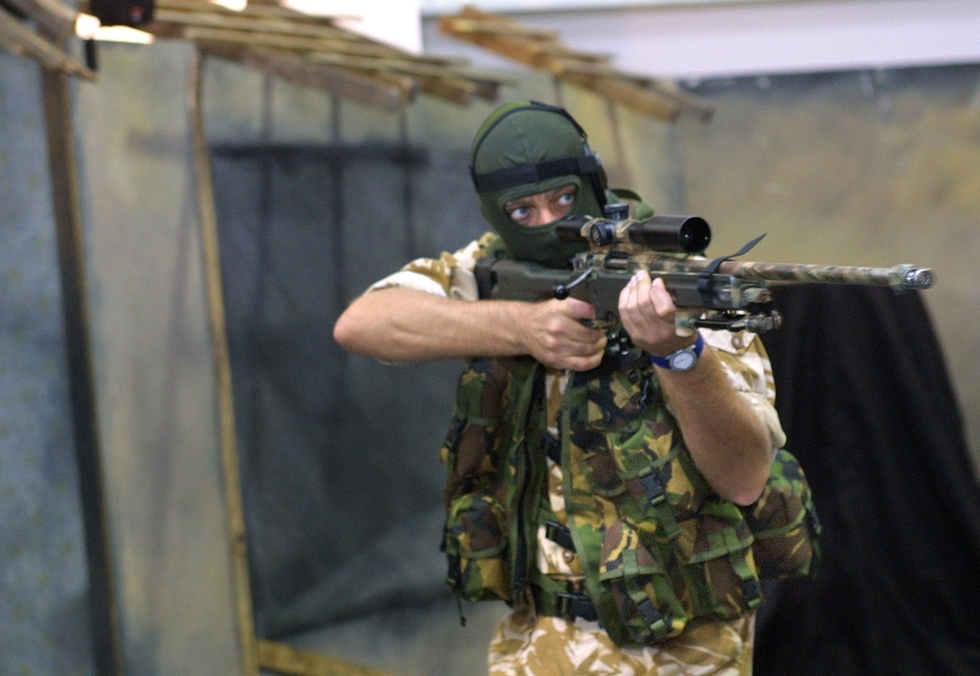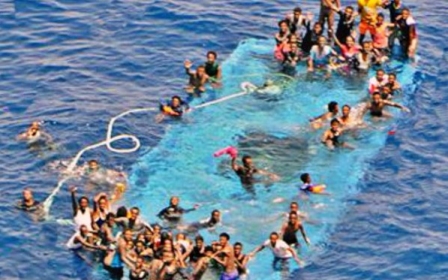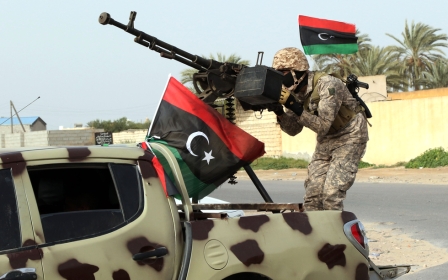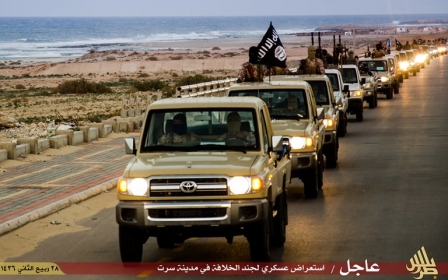UK covert ops in Middle East can't stay secret forever, says top Tory MP

A senior Conservative MP has told Middle East Eye that parliament should have oversight of covert military operations in the Middle East, after news emerged that elite SAS troops have been battling the Islamic State group in Libya.
Crispin Blunt said he understood why the British public may think the UK is engaged in a secret war across the region, as more and more reports emerge of covert military operations against IS.
“The longer it goes on you can’t keep these things secret forever,” he said. “If you’re running a strategy and you’re using special forces to do it – and you’re doing it over a prolonged period – you’ll get into the position we’re getting into now, which is that there is a consistent pattern of open source reporting on it.”
Over the past year the UK has been reportedly carrying out covert military operations in Yemen, Syria, Iraq, and Libya - with the latest report on Thursday by the Times.
The newspaper reported that SAS troops were spotted by local Libyan fighters earlier in May blowing up an IS vehicle laden with explosives near the port city of Misrata.
The Times report came just two days after Defence Secretary Michael Fallon said the UK had "no plans" to deploy troops to Libya in a combat role.
Blunt, a former army officer and current chairman of the Commons foreign affairs committee, described the division between SAS troops - whose operations are not made public - and the rest of the army as "slightly artificial".
He said there was a need for SAS operations to remain secret, but said parliament should debate their role in a wider military strategy to take on IS in the region.
“If they are classic SF operations – sharply in, and sharply out – then you would need to maintain their secrecy,” he said. “If they are part of a strategy you would expect that strategy to be overseen.”
Blunt said the only information provided to MPs on Britain’s military operations in Libya has been from Foreign Office minister Tobias Ellwood, who informed them of RAF flights over the war-torn country.
However, Ellwood refused to provide further information on the flights when asked by MPs.
Blunt said there is “no formal process” under way in parliament to establish oversight of SAS missions but he did say it was “becoming a subject of conversation”.
“There’s obviously an issue as to whether the intelligence and security committee would be the proper vehicle for oversight of these kinds of operations but we are not there at the moment,” he said.
Covert British involvement in Libya was first revealed by MEE in March but they are not the only foreign power on the ground in the war-torn country.
MEE correspondent Tom Westcott reported on 17 May that US special forces had been spotted patrolling in Misrata.
Domestic media in Italy reported that Italian special forces have carried out operations near Benghazi in conjunction with Khalifa Hafter, head of the self-declared Libyan National Army (LNA).
In February French special forces were also reported as working with the LNA in Benghazi.
Covert foreign military operations have increased in Libya as the threat from IS has grown – the group is in control of the central town of Sirte, birthplace of Muammar Gaddafi, who was killed in a 2011 NATO-backed revolution.
IS has an estimated 6,000 fighters in Libya, and it has flourished amid the chaos that has reigned since Gaddafi’s overthrow, allowing it to establish a strong presence on the Mediterranean coast just 300km from Europe.
European leaders have increasingly seen Libya as a priority to be dealt with, as fears have grown not just of IS but also out of a desire to stem the flow of asylum seekers using Libya as a route to Europe.
However, in April UN envoy to Libya Martin Kobler told MEE the priority for Libya is reuniting and establishing a unified military force that, once functioning, could request assistance from foreign powers to win control over all of Libya.
Kobler has been working to get a new unity government – the Government of National Accord (GNA) – established in the capital Tripoli, but it has struggled to start work as competing parliaments refuse to handover power.
The General National Congress, which is based in Tripoli, does not control any key institutions anymore but it still has not officially ceded power to the GNA.
And in the east, the House of Representatives, which was the internationally recognised government until recently, has doggedly refused to give up power, sparking fears of potential partition between east and west Libya.
New MEE newsletter: Jerusalem Dispatch
Sign up to get the latest insights and analysis on Israel-Palestine, alongside Turkey Unpacked and other MEE newsletters
Middle East Eye delivers independent and unrivalled coverage and analysis of the Middle East, North Africa and beyond. To learn more about republishing this content and the associated fees, please fill out this form. More about MEE can be found here.




